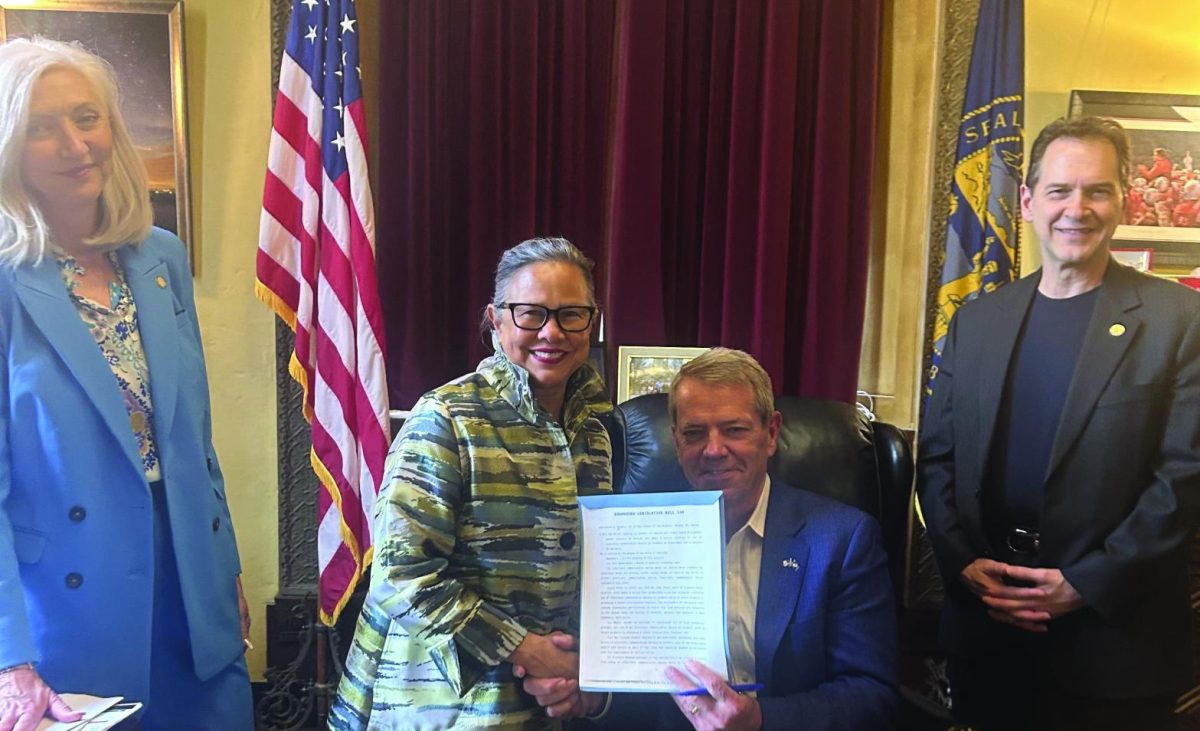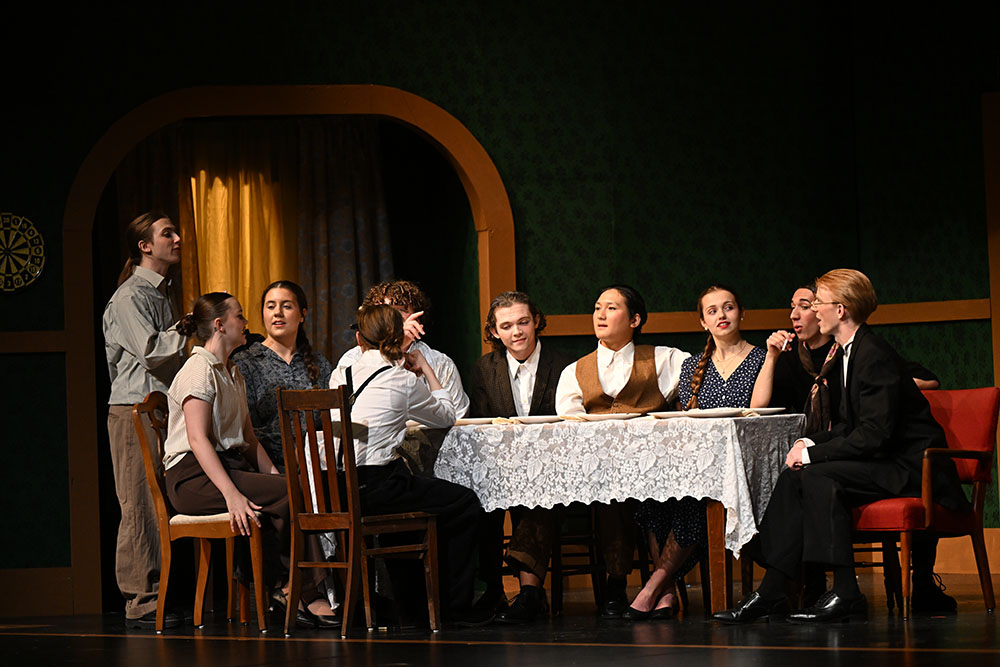Nebraska lawmakers passed a bill this spring requiring schools to enforce stricter cell phone policies. LSE has developed policies around cell phone usage in the classroom over the past couple of years, but now they have to be enforced under Nebraska law.
LB140 calls for school boards of each district to be responsible for establishing rules that abide by the bill and are responsive to the needs of parents, students and educators. Examples of when it’s acceptable for there to be cellphone use in the classroom is when it’s used and approved for educational purposes, a part of a student’s special education plan, “in case of emergency or perceived threat of danger”, used to monitor or manage student’s health or when determined appropriate by the school board or otherwise allowed by an appropriate school employee.
Over the last several years, LSE teachers have had their own rules regarding cell phones, and their level of strictness varies. However, this year, according to Principal Tanner Penrod, administration is expecting more consistency in cell phone rule enforcement and has specifically asked teachers to comply with the policies and procedures stated in the school handbook.
If teachers do not comply with cell phone policies and perform their professional responsibilities, they are subject to reinforcement by administration. The LPS Director of Student Services, Ryan Zabawa, says continuously ignoring the law, “could level up into a performance concern that could result in a write up”. A violation of this law could even be documented on a teacher’s record.
Penrod and Zabawa emphasized that reinforcement of the policy would only follow after repeated reminders and clear disregard for the law. LPS’s goal isn’t to get teachers in “trouble”, but to follow state law.
In a situation where a student is using their phone in the classroom, the expectation for administrators is that they will appropriately evaluate the purpose of the student having their phone out.
Before the start of the school year, the LPS Department of Student Services met with building administrators and communicated how LB140 was going to alter LPS rules on cellphones. This information was then passed on to teachers during meetings in the first couple days of the school year, allowing teachers to be aware of the new policies as well.
When it comes to LSE teachers, Penrod has confidence in the fact that they will follow expectations and enforce the no cellphone rule within the classroom. Multiple departments such as the English Department and the World Language Department collectively decided this school year that students should turn in their phones before the class period starts.
Teachers are supportive of this because they see how the elimination of cellphone use during instructional time benefits the ways students operate in the classroom. Oftentimes, conflicts between teachers and students have to do with cell phones; the provision of clear guidance on how to enforce no cell phones in class allows for a smooth transition since LB140 was put into law.
In only the first couple weeks of the school year, Penrod has noticed major improvements when it comes to cell phone use. Fewer students are seen using their phones in the classroom, hallways and bathrooms during instructional time. There will always be outliers, but overall students have responded “exceptionally well” to the greater enforcements on phones that have been implemented this school year.
When LPS first began putting stricter rules on phones two years ago, the Department of Student Services interviewed some high school student councils. They got feedback that students felt they did a better job of getting their work done in school and ultimately had less homework because they didn’t have a cell phone distracting them.
Additionally, it was observed that the circulation of book checkouts in libraries went up after stricter phone policies were put into place.
Based on data that has been recorded and monitored by LPS on cellphone use in classrooms, Zabawa doesn’t expect major modifications to be made to current regulations within schools.
Since LB140 was enacted, LPS has responded accordingly to the official law through stricter, more specific expectations for not only students, but staff.
“The more that we can give kids permission to take a break away from their devices, the better,” Zabawa said.




